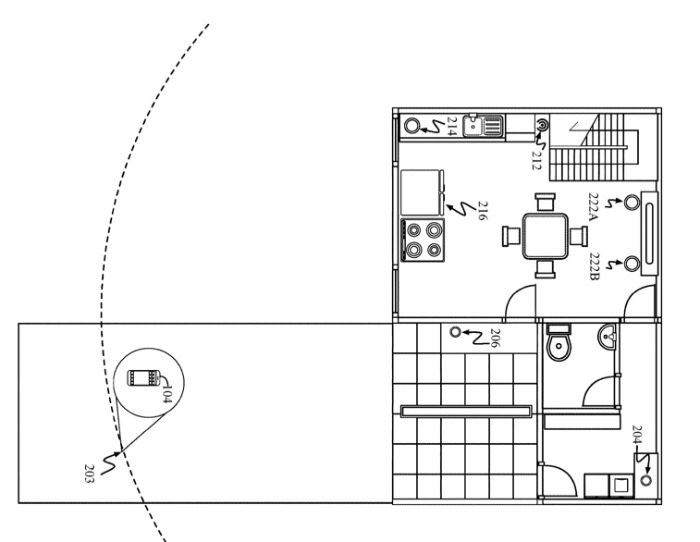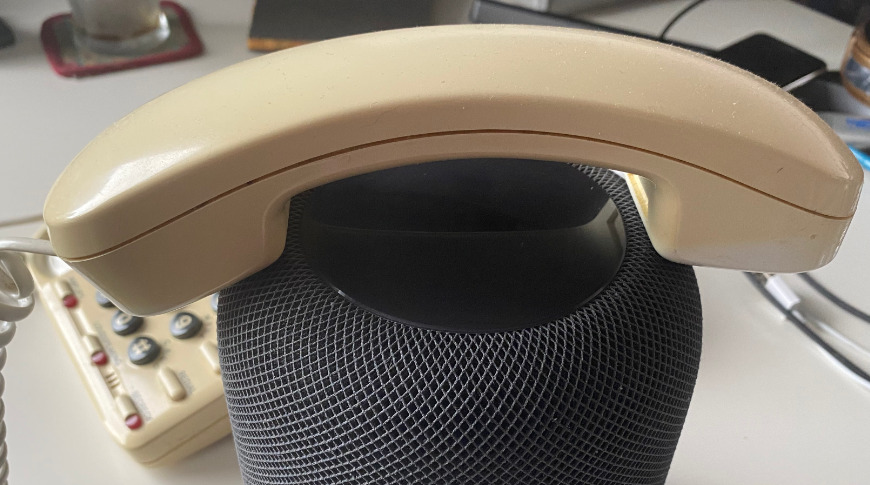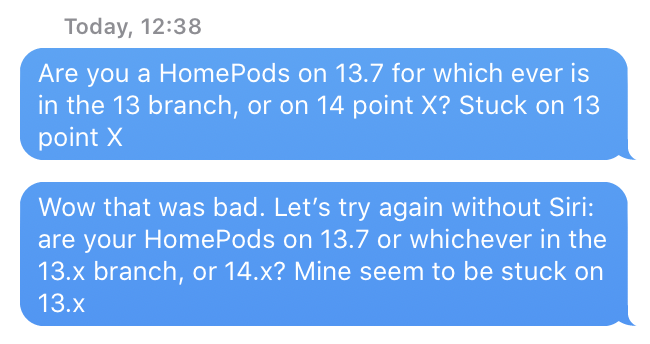As part of making Siri more useful, and leveraging all of your devices, future HomePods may be able to automatically take calls, using acoustic authentication to make sure the connection is secure.
Right now you can tell your HomePod, "Hey, Siri, phone my mom," and it will do it. During a regular conversation on your iPhone, you can pass the call over to a HomePod and continue to talk hands free. Now, though, Apple wants to extend that and make it more seamlessly natural, as part of making Siri more useful.
Very much of the newly-revealed patent application, "Embedded audio passcode in ringtone to establish secure connection for arbitrary phone relay," is focused on that secure connection aspect. Apple wants your calls to go to your HomePods, or other devices, and not have any chance of misdirection, or interception.
It's focused on making these secure connections so that every one of your devices can be part of a network that lets you securely route requests to whichever iPhone or HomePod is best suited for what you want. The main example of this connection in this patent application, is for the routing of phone calls from an iPhone, or what Apple refers to as a "user device," to one or more HomePods.
"When [an iPhone] receives an incoming call, the user device can signal the smart home device," says Apple. "The signal for the incoming call can be sent directly to the smart home device... or can be a broadcast or multicast message that is sent over the data connection."
That "smart home device" can be any number of things, but the patent specifies a HomePod as its main example. "When [an iPhone] is within a threshold range of the smart home device and receives an incoming cellular call, [it] can send a signal to the smart home device to notify the smart home device that the particular user device has an incoming call," says Apple.
So one, many, or all of your HomePods could play the sound of your phone ringing — even if you have custom ringtones. "Where the [iPhone] is configured to play a custom ringtone, the data or audio for the custom ringtone can be streamed to the smart home device," says Apple.
 As long as an iPhone is within range, calls to it can be routed out to any smart device in the house
As long as an iPhone is within range, calls to it can be routed out to any smart device in the house"A user can answer a ringing incoming call at the smart home device via an interface on the smart home device, such as a physical button or a touch interface, such as a touchscreen," continues Apple. "[Or] a user can answer an incoming call via a virtual assistant voice command such as 'answer my call in the living room.'"
The patent application goes into more detail about routing calls, and in particular keeping the signal secure. However, it uses all of this as one major example of making what it refers to as "Virtual Assistant Class" (VAC) devices.
"As used herein, term virtual assistant can be used interchangeably with the terms 'digital assistant,' 'intelligent automated assistant,' or 'automatic digital assistant,'" explains Apple, "and generally refers to any information processing system that interprets natural language input in spoken and/or textual form to perform actions on behalf of a user."
As well as routing a phone call from your iPhone to any HomePod you specify, the same secure channels can be used to relay your instructions to the appropriate devices. "The user can also request the performance of a task," says Apple. "For example, 'Please invite my friends to my girlfriend's birthday party next week.'"
"In response, the virtual assistant can acknowledge the request by saying 'Yes, right away,' and then send a suitable calendar invite on behalf of the user to each of the user's friends listed in the user's electronic address book," continues the patent application. The HomePod you're talking to doesn't have to have a calendar, doesn't need to be able to email, it just has to be able to securely relay the request to your devices which can.
The patent application is credited to seven inventors, including Daniel C. Klingler, who has a previous related patent on "Inter-device digital audio."
Keep up with all the Apple news with your iPhone, iPad, or Mac. Say, "Hey, Siri, play AppleInsider Daily," — or bookmark this link — and you'll get a fast update direct from the AppleInsider team.
 William Gallagher
William Gallagher







-m.jpg)






 Christine McKee
Christine McKee
 Malcolm Owen
Malcolm Owen
 Marko Zivkovic
Marko Zivkovic

 Andrew Orr
Andrew Orr
 Andrew O'Hara
Andrew O'Hara






-m.jpg)



11 Comments
I’m definitely ready for some expansion of HomePod capabilities. I have four and they sound great!! Not the problem though. I want to do more with them than listening to music and giving commands to turn on lights. Trying to use shortcuts is a pain too. They also seem to have become stupid and less efficient after an update. Sure hope Apple takes this segment of the market more seriously.
Has anyone heard any updates on the plan to allow HomePods to work with other music services (Spotify, YouTube Music, etc.)? Honest question, not trying to start a flame war or anything. I don't use Apple Music and have no plans to ever switch, so the HomePod hasn't been an option for me, even though, when on sale, they seem like a decent value for the sound quality. But it feels like Apple announced that they were going to relent on that capability, then nothing. Unless I've just missed it.
Might want to make Siri smarter first, this was dictated to my HomePod today:
![]()
